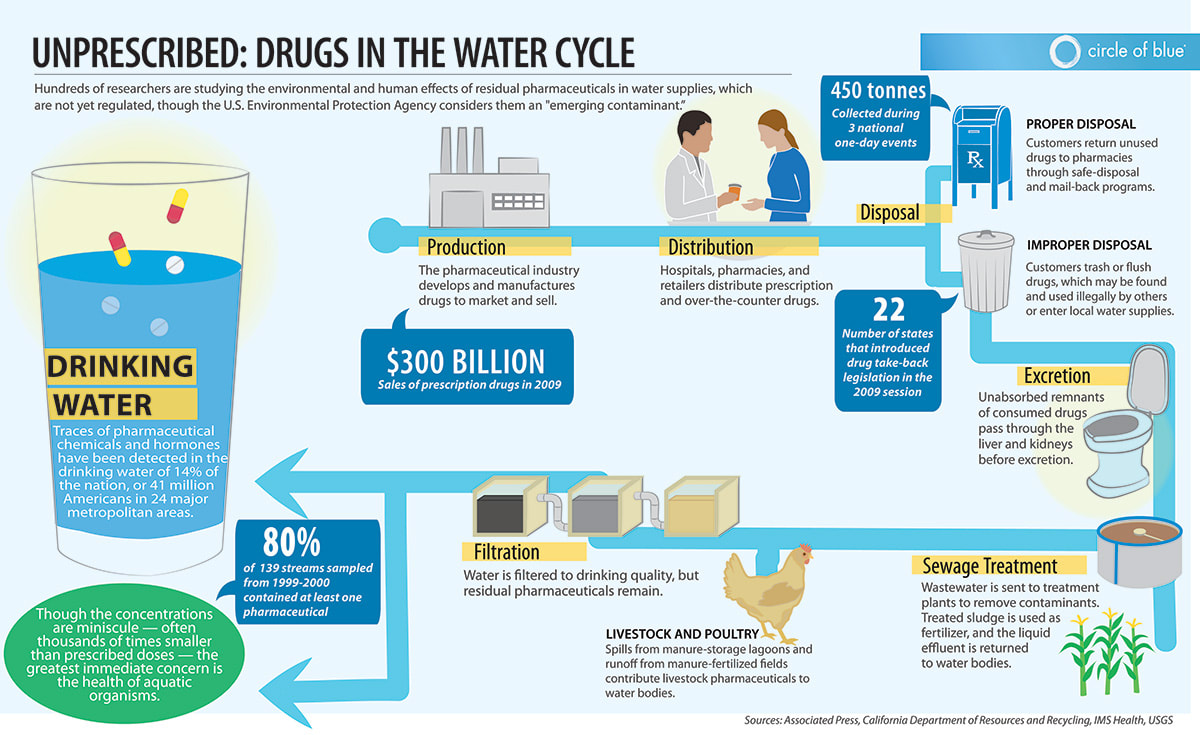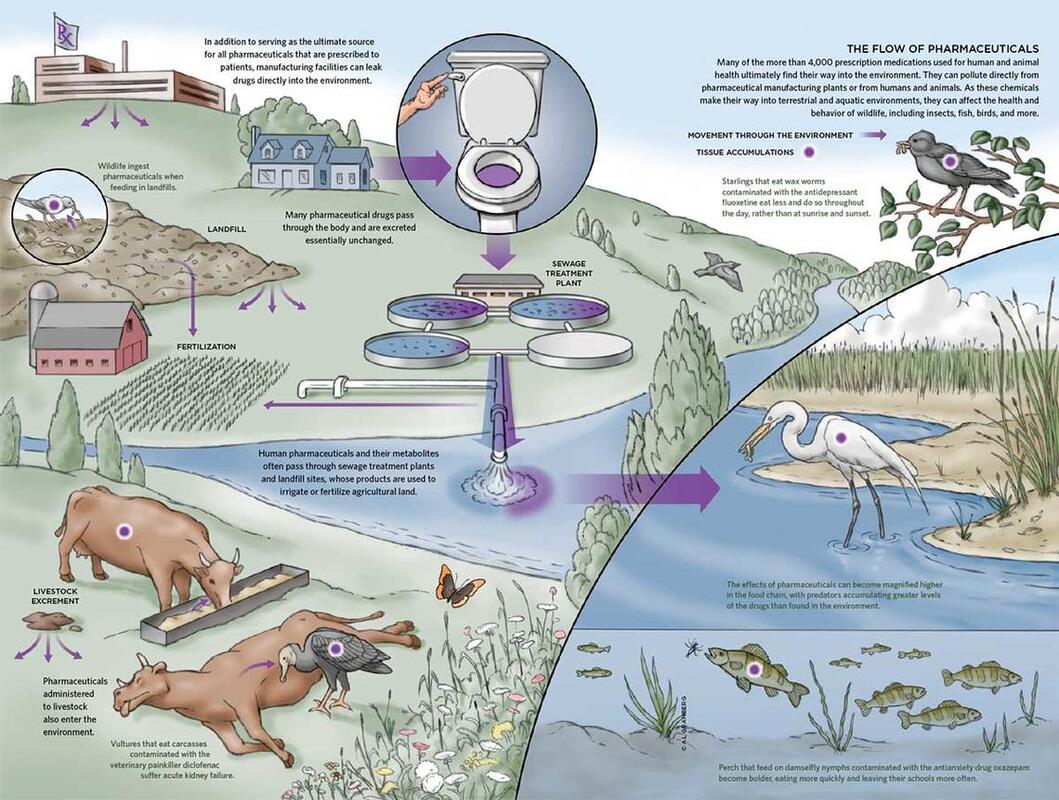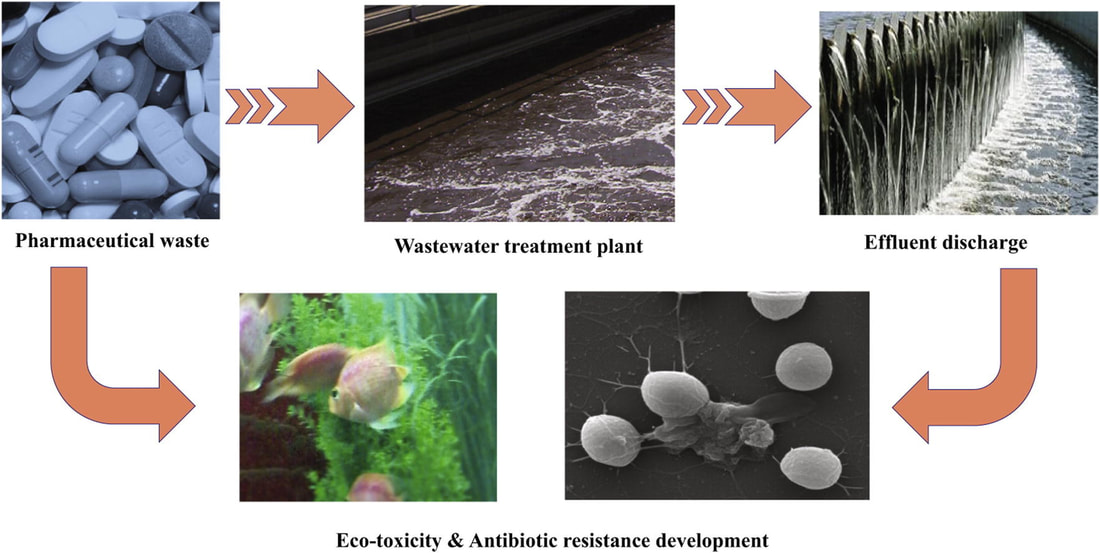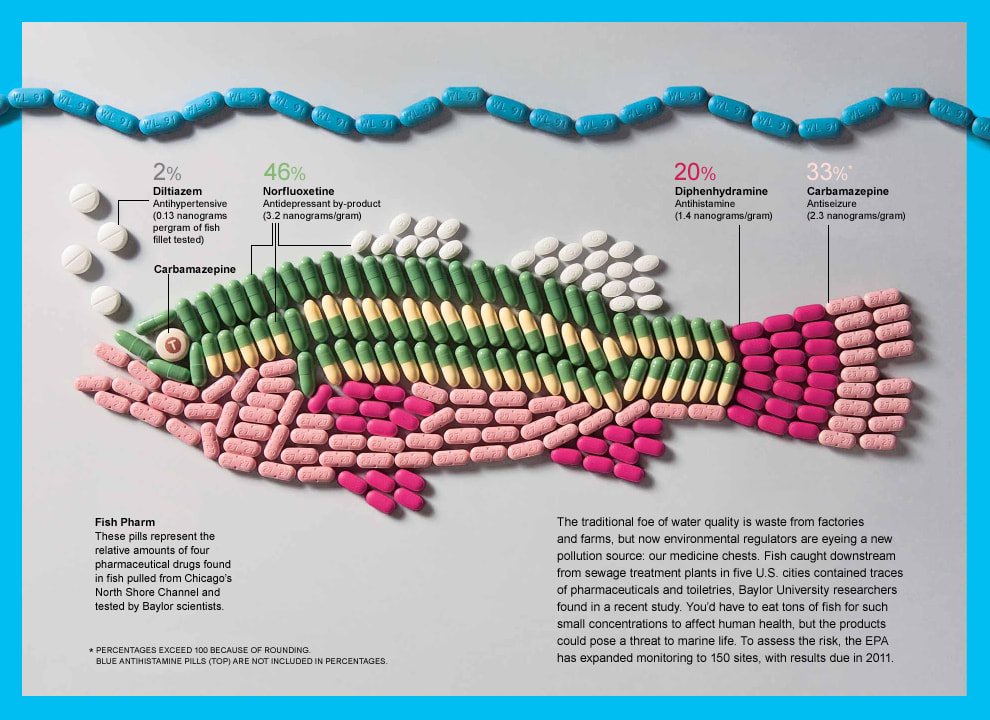19.10.2021
Drugged Waters – How Modern Medicine Is Turning Into An Environmental Curse
As the world’s population expands and we become wealthier, drugs and chemical-based care products become more prevalent. While pharmaceuticals are essential for human health and well-being, less is known on the effects they have on the freshwater sources on which we depend for our existence, and their impact on human health and biota. Drug manufacturing facilities are an important source of environmental pollution. Wastewater treatment plants are unable to filter out chemical compounds used to manufacture personal care products and drugs, so these chemicals seep into freshwater systems and into the oceans. For some time, evidence has been mounting that chemical pollution may be entering the food chain and altering the sex functions of fish. But these effects may not be limited to fish. Research suggests that exposure to pharmaceuticals and other chemicals in drinking water may affect human reproductive systems too. Removing traces of drugs in water sources is ultimately not just a problem for wastewater treatment plants but also for the pharmaceutical industry and for governments. Business leaders and policymakers globally should take note, and act by the precautionary principle in environmental decision-making. Credit: epha / Brut.
Poverty deprives people of adequate education, health care and of life's most basic necessities- safe living conditions (including clean air and clean drinking water) and an adequate food supply. The developed (industrialized) countries today account for roughly 20 percent of the world's population but control about 80 percent of the world's wealth.
Poverty and pollution seem to operate in a vicious cycle that, so far, has been hard to break. Even in the developed nations, the gap between the rich and the poor is evident in their respective social and environmental conditions.
Poverty and pollution seem to operate in a vicious cycle that, so far, has been hard to break. Even in the developed nations, the gap between the rich and the poor is evident in their respective social and environmental conditions.









